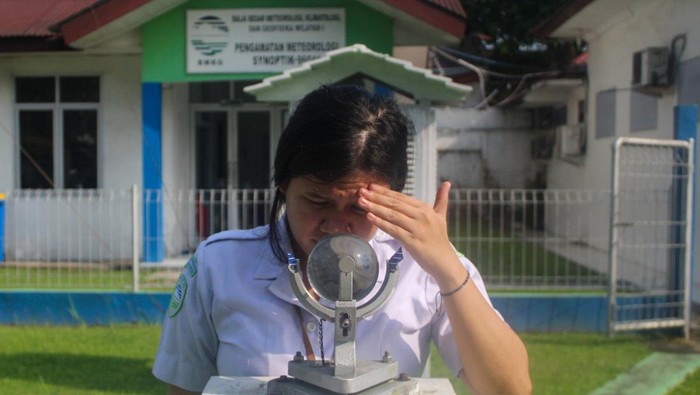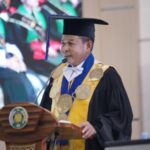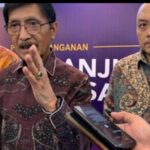Jakarta – The weather in Medan is scorching hot again, with Google Weather even categorizing it as ‘excessive heat,’ meaning temperatures are above normal. Here’s what the Meteorology, Climatology, and Geophysics Agency (BMKG) says.
Jakarta
Jakarta, the capital city of Indonesia, is a bustling metropolis with a rich history dating back to the 4th century as a Hindu port city. It later became a major trading hub under Dutch colonial rule, known as Batavia, before gaining its current name after Indonesia’s independence in 1945. Today, Jakarta is a vibrant cultural and economic center, blending modern skyscrapers with historic landmarks like the Old Town (Kota Tua) and the National Monument (Monas).
Medan
Medan is the capital city of North Sumatra, Indonesia, and a vibrant cultural and economic hub. Founded in the 16th century, it grew significantly during the Dutch colonial era as a center for tobacco and rubber plantations. Today, Medan is known for its diverse heritage, blending Malay, Chinese, Indian, and Batak influences, with landmarks like the Maimun Palace and the Great Mosque of Medan reflecting its rich history.
Meteorology, Climatology, and Geophysics Agency (BMKG)
The Meteorology, Climatology, and Geophysics Agency (BMKG) is Indonesia’s national agency responsible for monitoring weather, climate, and geophysical phenomena, including earthquakes and tsunamis. Established in 1947 during the Dutch colonial era as *Meteorologisch en Geofisiche Dienst*, it was later nationalized after Indonesia’s independence. Today, BMKG plays a critical role in disaster early warning systems and climate research to protect public safety and support sustainable development.
BMKG Open Laboratory
The **BMKG Open Laboratory** is a facility operated by Indonesia’s Meteorology, Climatology, and Geophysics Agency (BMKG), designed for research, education, and public engagement in weather, climate, and geophysical sciences. Established to enhance transparency and collaboration, it provides access to real-time data, interactive exhibits, and training programs to improve disaster preparedness and climate awareness. The lab reflects BMKG’s mission to advance scientific knowledge and public understanding of environmental phenomena in Indonesia.
Campbell Stokes
The Campbell-Stokes Recorder is a meteorological instrument invented in 1853 by John Francis Campbell and later improved by George Stokes. It measures sunshine duration by focusing sunlight through a glass sphere to burn a trace on a calibrated card, indicating the intensity and duration of sunlight. Historically significant, it remains one of the earliest and most enduring tools for recording solar radiation.
North Sumatra
North Sumatra, located on the island of Sumatra in Indonesia, is a diverse region known for its stunning natural landscapes, including Lake Toba—the largest volcanic lake in the world—and the lush rainforests of Gunung Leuser National Park. The area has a rich cultural heritage, home to the Batak people, whose traditions, music, and distinctive architecture are prominent. Historically, it was part of ancient trading kingdoms and later influenced by Dutch colonialism, which shaped its modern development.






